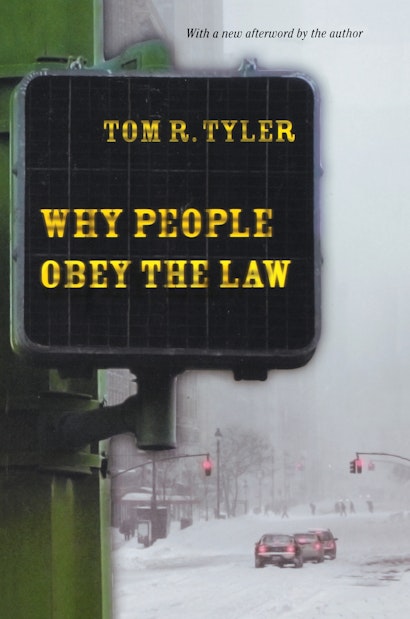People obey the law if they believe it’s legitimate, not because they fear punishment—this is the startling conclusion of Tom Tyler’s classic study. Tyler suggests that lawmakers and law enforcers would do much better to make legal systems worthy of respect than to try to instill fear of punishment. He finds that people obey law primarily because they believe in respecting legitimate authority.
In his fascinating new afterword, Tyler brings his book up to date by reporting on new research into the relative importance of legal legitimacy and deterrence, and reflects on changes in his own thinking since his book was first published.
Tom R. Tyler is University Professor at New York University, teaching in the Psychology Department and the Law School. He studies the exercise of authority in groups, organizations, and societies. His many books include The Social Psychology of Procedural Justice, Social Justice in a Diverse Society, Cooperation in Groups, and Trust in the Law.
"Praise for the original edition: "[T]he argument and findings of Why People Obey the Law have important implications for the debate about the way in which people subject to legal procedures should be treated. . . . [T]he study is provocative and raises an issue of real importance.""—Roger Hood, Times Literary Supplement
"Praise for the original edition: "Theoretically and empirically, Tyler makes a powerful case. . . . The data set is unusually rich.""—V. Lee Hamilton, Michigan Law Review
"Praise for the original edition: "[A] major contribution by a well-known, well-respected scholar in the field.""—Austin Sarat, Law & Society Review
"Praise for the original edition: "Tyler's book is interesting, significant, and clearly written. Most important, it contributes to an urgent need for critical consideration of . . . an ideology whose main results have been the current shameful state of the American penal system.""—Dario Melossi, Contemporary Sociology
"Tyler's book posits an alternative model of legal compliance—one that focuses upon ways of obtaining public consent for and cooperation with particular regulatory regimes.... Though written from the perspective of the discipline of social psychology, there are lessons here for everybody involved or interested in legal regulation, governance or, indeed, community relations."—Andrew Goldsmith, Law Society Journal

